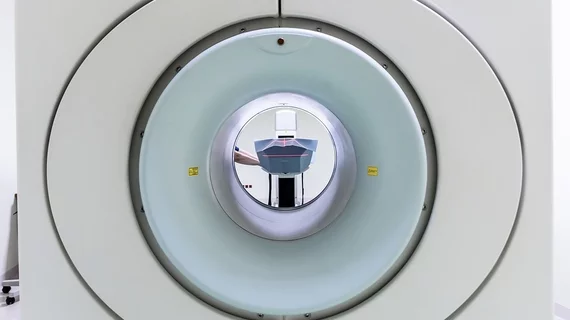10.5T MRI scanners tested on humans as imaging equipment keeps getting bigger
After four years of testing on animals and making key updates, the University of Minnesota’s Center for Magnetic Resonance Research in Minneapolis was finally ready to test its massive 10.5T MRI scanner on a human. And once the scan was complete, it turned out it was worth the wait.
“It was extremely exciting and very rewarding,” Kamil Ugurbil, the center’s director, said, as quoted in a news release from Nature. The article looked at what the University of Minnesota, and other research teams, are currently doing with the latest MRI technology.
The University of Minnesota’s scanner is one of “a handful” around the world, according to Nature. While most hospitals are using 1.5T or 3T MRI scanners—7T equipment is just now starting to be approved for clinical use by the FDA—these researchers are taking things to a whole other level.
Ugurbil noted he thinks his team is months away from scanning human brains with the scanner. He is also a part of a group currently throwing around the idea of imaging humans with 20T MRI.
To read the full news release, including a fascinating time-lapse of the installation of a 10.5T MRI, click the link below.

